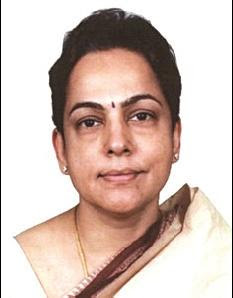Benchmark started off with an initial corpus of about Rs.1 billion (in its fund titled Gold BeES); & from thereon, “we have got a very good response...  Since the listing, the number of investors has increased over 70% & the number of units by over 30%, & that too in just about three months,” thumped Rajan Mehta, Executive Director, Benchmark Asset Management, to B&E. R Raja, Sr. Vice President, UTI Asset Management Company, was as equally excited, “From initial corpus of 1,399 kgs, our corpus has swollen to 1,581 kgs as on July 17, 2007”.
Since the listing, the number of investors has increased over 70% & the number of units by over 30%, & that too in just about three months,” thumped Rajan Mehta, Executive Director, Benchmark Asset Management, to B&E. R Raja, Sr. Vice President, UTI Asset Management Company, was as equally excited, “From initial corpus of 1,399 kgs, our corpus has swollen to 1,581 kgs as on July 17, 2007”.
Though Ritesh Jain, Head-Fixed Income, Kotak Mahindra AMC (initial corpus Rs.400 million), stated dejectedly to B&E, “The response has been a tad lower than our expectations as the collections that we have garnered could have been higher by another 20-25%.” And there lies the most critical question. Should a 30% increase in units (as in Benchmark’s case), or a 181 kg increase in gold asset holdings (as in UTI’s case) really be a cause to rejoice?
 Since the listing, the number of investors has increased over 70% & the number of units by over 30%, & that too in just about three months,” thumped Rajan Mehta, Executive Director, Benchmark Asset Management, to B&E. R Raja, Sr. Vice President, UTI Asset Management Company, was as equally excited, “From initial corpus of 1,399 kgs, our corpus has swollen to 1,581 kgs as on July 17, 2007”.
Since the listing, the number of investors has increased over 70% & the number of units by over 30%, & that too in just about three months,” thumped Rajan Mehta, Executive Director, Benchmark Asset Management, to B&E. R Raja, Sr. Vice President, UTI Asset Management Company, was as equally excited, “From initial corpus of 1,399 kgs, our corpus has swollen to 1,581 kgs as on July 17, 2007”.Though Ritesh Jain, Head-Fixed Income, Kotak Mahindra AMC (initial corpus Rs.400 million), stated dejectedly to B&E, “The response has been a tad lower than our expectations as the collections that we have garnered could have been higher by another 20-25%.” And there lies the most critical question. Should a 30% increase in units (as in Benchmark’s case), or a 181 kg increase in gold asset holdings (as in UTI’s case) really be a cause to rejoice?
For Complete IIPM Article, Click here
Source: IIPM Editorial, 2008
An IIPM and Management Guru Prof. Arindam Chaudhuri's Initiative
Source: IIPM Editorial, 2008
An IIPM and Management Guru Prof. Arindam Chaudhuri's Initiative

